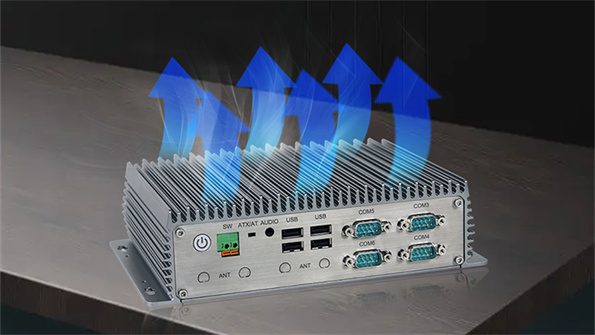What Makes an Edge PC Truly Industrial?

But not every edge PC is made for the industrial world. Running AI models on a factory floor or handling data in a moving vehicle isn’t the same as office work. The environment is harsher, the workload is heavier, and reliability is everything. That’s where this blog comes in. We’ll break down what truly makes an edge PC “industrial” — how it’s built, why it matters, and what to look for when choosing one for real-world applications.
What Sets an Industrial Edge PC Apart?
An industrial edge PC is built specifically for challenging environments—think of factory floors, outdoor enclosures, or onboard vehicles. These systems are exposed to heat, cold, dust, shock, and need to run reliably 24/7.
So, what makes an edge PC truly industrial? Here’s a simple breakdown:
Core Qualities of a Truly Industrial Edge PC
So, what exactly makes an edge PC industrial? It’s not just a label; it comes down to how it’s designed, built, and tested to handle real-world challenges. Here are the key things to look for:
Rugged Hardware Design
Their durability is essential in industrial settings where equipment is often subjected to constant movement, temperature swings, and exposure to dust or humidity. In fact, industrial edge PCs are commonly used in applications that involve temperature ranges as wide as -40°C to 70°C, much broader than what you'd expect from commercial PCs.
Thermal Engineering for 24/7 Operation
This capability is vital for environments where maintaining optimal temperature control is crucial, such as in sectors like energy or transportation, where equipment is exposed to both freezing and hot temperatures.
Flexible Power
Industrial-Grade I/O and Expansion
RS-232/422/485 COM ports for legacy devices
M12 or PoE LAN ports for secure, rugged connections
Support for modular expansion (e.g., M.2, PCIe)
These industrial-grade I/O options make it easy to tailor the system to various applications, whether you’re automating manufacturing processes or supporting IoT deployments in harsh environments.
Security
As edge computing becomes more connected, security is a must. Many industrial PCs now come with TPM 2.0, secure boot, and BIOS-level protections. With the increasing need for real-time data processing and IoT integration, advanced data protection is another key feature. Edge PCs integrate robust encryption, authentication technologies, and secure boot protocols to prevent unauthorized access and safeguard data integrity in mission-critical environments.
Built to Last, Designed for Industry
Whether you're building smart factories, deploying AI in the field, or upgrading legacy systems, it's worth investing in edge hardware that’s actually built for industry. Their real-time processing, advanced security, and environmental resistance make industrial edge PCs the backbone of Industry 4.0 applications, driving innovation and efficiency.
At InnoAioT, we specialize in industrial computing solutions that are rugged, reliable, and ready to scale. If you’re exploring options or need help deciding what fits your application best, get in touch to learn more about our industrial edge computing solutions.
